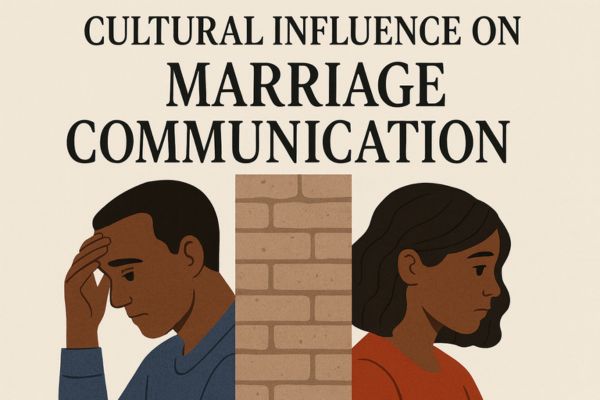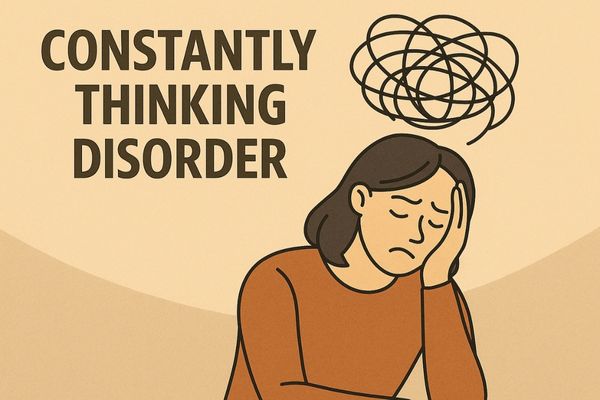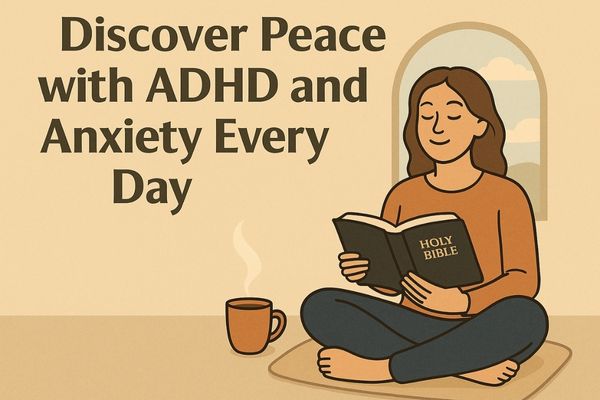
Life moves in seasons. Seasons change with time, whether we notice them or not.
But life also moves in cycles. And cycles are different. Seasons are set by God’s design. Cycles are often shaped by our choices, our mindset, or our beliefs.
A season can bring growth, harvest, or rest. A cycle can keep you stuck in the same place — repeating old patterns, investing energy but never moving forward.
This is what anxiety feels like. Or intrusive thoughts. A loop that drains you.
When we look at overcoming obstacles in the Bible, John 5 gives us a clear picture.
At the pool of Bethesda — a name that means “house of mercy” in Hebrew — a man waited 38 years for healing. He believed his only chance was to get into the water when it was stirred. But others always went ahead of him.
Then Jesus showed up.
This story is about more than physical healing. It shows us three obstacles that keep us stuck: comfort, blame, and faulty belief systems.
The Obstacle of Comfort in the Bible
The pool had five porches. These gave shade and shelter to the sick as they waited. Food was provided. The sun was kept off their backs.
This was mercy — but it also became a trap.
When you live with anxiety or intrusive thoughts, comfort can look like safety behaviors: avoiding people, staying in routines, or numbing yourself with distraction. It feels easier than facing change.
But comfort, when it becomes a porch you never leave, keeps you from growth.
The man had been there almost four decades. Even if he had moved slowly, he could have reached the pool by now. Yet comfort held him back.
We often fall into the same trap. We stay where it feels safe, even if it keeps us stuck. Over time, that “safety” becomes the very thing that blocks us from progress.
Reflection Prompt
What “porches” in your life give you comfort but keep you from growing? Write one down today, and ask yourself what a small step off that porch would look like.
The Obstacle of Blame
When Jesus asked the man, “Do you want to be made well?” his answer was not yes. It was blame: “I have no one to help me. Someone else always gets there first.”
Blame feels easier than responsibility.
- “I can’t heal because of them.”
- “I’m stuck because of my past.”
- “If my parents had supported me, I’d be further ahead.”
But when we blame, we hand away our power. Our growth depends on someone else changing.
Blame shows up in mental health, too. We blame ourselves for our thoughts. We blame others for our pain. Either way, we stay stuck.
Jesus’ question cuts through: “Do you want to be made well?”
Not: Who stopped you?
Not: Who failed you?
But: Do you want?
It’s a question of desire. Growth begins when we stop pointing outward and start looking inward.
Reflection Prompt: Blame
Where are you giving away your power by blaming others?
Notice one place you’ve said, “I can’t move forward because of them,” and reframe it: “With God’s help, I can take a step anyway.”
The Obstacle of Faulty Belief Systems
The man believed the only way to be healed was through the pool. That story had been repeated so often it became truth to him.
But when Jesus stood in front of him, the man still waited for water.
This is what happens when lies shape our core beliefs.
- A parent says, “You’ll never amount to anything.”
- A teacher calls you “stupid.”
- Someone tells you, “You’re ugly. You’re unworthy.”
Over time, you live as if those words were prophecy.
So when anxiety whispers, “You can’t change. You’ll always be stuck,” you believe it. When intrusive thoughts say, “You’re broken,” you agree.
Faulty belief systems don’t form overnight. They are built word by word, year by year. But they can be replaced.
Renewing your mind in Christ means trading the false story for the true one. God is not limited by our past, our family tree, or our diagnosis. He is not bound to one method. His ways are higher than ours.
The question is: What old story are you still living by?
Is it a label someone gave you? A lie you tell yourself? Replace it with a truth: “I am a child of God. My story is not finished.”
What John 5 Teaches About Overcoming Obstacles in the Bible
This passage shows two competing belief systems:
- Tradition: “If the angel stirs the water, maybe I’ll be healed.”
- Jesus: “Rise, take up your bed, and walk.”
We face the same today.
Anxiety says, “This is just who I am.”
Intrusive thoughts say, “This is my identity.”
But faith says, “You are a child of God. You are more than this moment.”
Even religious voices questioned the healing. When the man carried his mat on the Sabbath, they asked, “Who told you to do this?”
Some people prefer you stuck, dependent, unchanged. But growth comes when you stop waiting for perfect conditions and respond to Jesus’ voice.
The Root Issue — Sin and Grace
After the healing, Jesus found the man in the temple and said, “See, you are well. Sin no more, lest something worse happen to you.”
This is another layer of truth: sometimes what keeps us stuck is not only comfort, blame, or belief — but hidden patterns of sin. Fear that keeps us from faith. Shame that keeps us from asking for help. Pride that keeps us from changing.
The answer is not working harder. The answer is grace.
Ephesians 2:8–9 reminds us: “For by grace you have been saved through faith. This is not your own doing; it is the gift of God.”
Grace means you don’t have to wait for the water to stir. You don’t have to earn your freedom. You only need to receive it.
Moving Forward
So let’s bring it back.
Do you believe it’s your turn to grow? To heal? To move forward?
The story of John 5 reminds us that overcoming obstacles in the Bible is about letting go of cycles and choosing a new response.
Here’s a practice you can try:
- Name the porch. What comfort is keeping you stuck?
- Stop the blame. Where have you been handing away your power?
- Challenge the story. What belief has shaped you that isn’t true?
Then, take one step — even a small one — that reflects trust instead of fear.
Progress doesn’t begin with perfect conditions. It begins with one step of faith.



